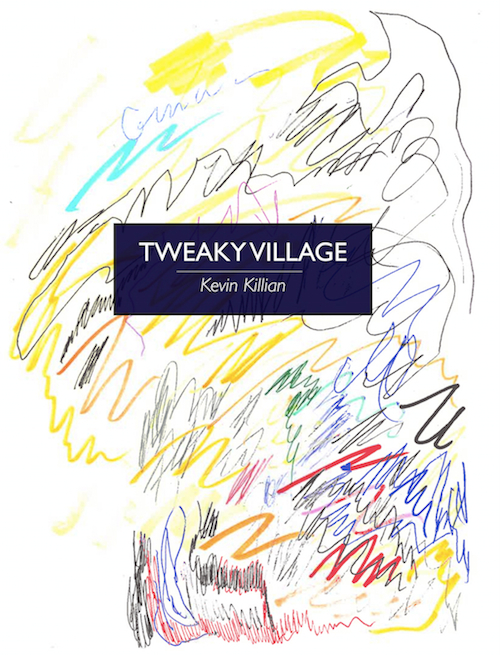Kevin Killian Interviewed at HTMLGIANT

At HTMLGIANT, Matt L. Rohrer talks to Kevin Killian about his new book from Wonder, Tweaky Village! Chosen by Macgregor Card for the first-annual Wonder Poetry Prize, Tweaky Village is "a wild and ranging collection of poems/narratives that deal with the author’s response to free-market capitalism, the constraints of the English language, the repetitious nature of porn, and much more.
Including the nature of form:
MLR: TWEAKY VILLAGE has a range of form that is quite radical, shifting from lineated poems to plays to linear narratives, sometimes making these moves within the same piece. Can you talk a bit about your relationship to form?
KK: In my lifetime I’ve witnessed the collapse of genre, so that one feels free to move back and forth between fiction and nonfiction, prose and poetry, drama and image (at an informal talk I heard her give once, NY-based poet Eileen Myles startled me by arguing that all such categories were marketing devices invented by marketers of the 17th century, the third century BC, whenever). And yet, I sometimes feel, if genre has collapsed why does it still today seem to rule supreme? Anyone who has dipped even a tiny toe into the MFA system of creative writing knows what I’m talking about.
MLR: How do the ideas of New Narrative play out in your poetry?
KK: The ideas of New Narrative weren’t solely formal ones; as I understood what I was learning, we were trying to meld together a poetry ot witness with a poetics of excess, so people like John Wieners and, um, Pierre Guyotat and Jean Rhys and Samuel Delany were our heroes because they admitted so much—so much that ordinary narrative left out of what I hate to call “the conversation,” but there it is. I guess when you’re desperate to find ways to totally embarrass yourself in writing, you literally have no time to remember if you started your confession in prose or poetry—you must continue at all costs.
MLR: How is the form of TWEAKY VILLAGE reflective of the politics of this book?
KK: I used to write and beautiful things seemed to happen without me making them happen—thus I began to subscribe to Spicer’s poetics of dictation. And yet now I surrender in the same way I once did, and terrible things write themseves across the page, so that my poetry once so pretty, is rapidly approaching the blank nihilism of my novels and stories. . . .
Read the entire interview at HTMLGIANT.


